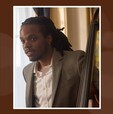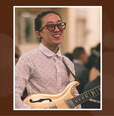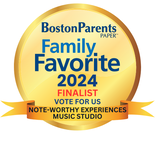By: Rhoda Bernard Arts Better the Lives of Everyone One of my great joys is experiencing the arts. I am a singer and pianist, specializing in Jewish music in Yiddish and Hebrew. I gig regularly, playing this music that I love at private parties, synagogues, and folk festivals whenever I can. Playing music keeps me grounded in what I love, focused on my passion, and in touch with the most meaningful part of my life. I have been told that I sang before I spoke – and if you know me, that says a lot, because I am quite a talker! My fondest childhood memories are of singing – songs from the radio, show tunes, melodies I made up on the spot, and songs that I learned at our temple. My parents, though not art makers themselves, were true arts lovers. When I was growing up, we regularly went to exhibits, concerts, plays, and performances – whether they were in our suburban community or twelve miles away in Boston. I grew up being a viewer, a listener, and an audience member, in addition to being a performing musician. It is no surprise, then, that I have devoted my professional life to ensuring that all individuals have meaningful access to and participation in the arts. I am the Managing Director of the Berklee Institute for Arts Education and Special Needs, a new Institute that stems from the recent merger between Berklee College of Music and Boston Conservatory. The Institute is a catalyst for the inclusion of individuals with disabilities in all aspects of visual and performing arts education. Our work has three main pillars, all of which focus on increasing access to arts education for all students: Arts Education Programs for individuals ages 3 to adult; one-of-a-kind Graduate Programs in Music Education and Autism; and Professional Development for the field. We are dedicated to ensuring that all people receive a meaningful arts education, and that they are taught by educators who have the tools and support that they need to reach every student. Our various Arts Education Programs include:
And coming in Fall 2018: We will be piloting a theater program for students with disabilities that will become a full-fledged program in the spring of 2019. We will be piloting a duet program to prepare students to play music in ensemble settings. This program will be an official program beginning in spring 2019. These programs are taught by our dedicated staff of instructors, all of whom are students or alumni from our Graduate Programs in Music Education and Autism. I am very, very proud of the outstanding teaching by our instructors and the fantastic training and support provided by our consultants. Currently, we serve more than 160 families every Saturday in these programs. If you’re interested in learning more about our work, please follow the links and go to our website. You can sign up to be on our newsletter mailing list, where you will learn about our programs, events, and initiatives. You can fill out an application for the program you are interested in by clicking the red APPLY button at the bottom of each program’s web page. Please also note that financial aid is available for families who qualify. There is a link to the financial aid application on every program page. At the Berklee Institute for Arts Education and Special Needs, we truly believe that the arts better the lives of everyone, and we are deeply committed to making it possible for every person to learn, experience, and participate meaningfully in the arts. We feel that access to the arts, arts learning, and arts experiences is a civil right, and we work hard every day to spread the great joy of the arts to every single person.
0 Comments
By: Tyrone Allen Over the years, I’ve been in a number of situations experiencing and playing music. Whether it was playing electric bass in Church, trying to sneak in some extra practice time in during High School, or struggling through guitar lessons, I have very different feelings associated with many different musical situations. Nowadays, I could find the most joy from working alone on a simple musical concept, and or it could be playing with an Indie-Rock band. Luckily because of the support of my parents, music eventually became a multi-dimensional joy for me, constantly filled with twists and turns that characterize my personal experience with sound...and that’s where you come in! The question I want to ask parents is this; from what you see and hear, is your child experiencing music in a way that works for them? Why or why not? As you can probably tell, my musical journey up to this point was not so cut and dry. My father first taught me recorder, and early on I dabbled with the piano and saxophone. Eventually I came to the guitar, and somehow I stuck with that for around 6 years. After a few years of taking lessons, my teacher brought to my attention an opportunity rehearse and preform 3 songs with some other students at the music store I was studying in. I participated and this ended up being a blast! For a while I continued playing with Tony and Leslie, the bass player and drummer from the group respectively. These are some of my first memories of feeling truly elated from playing, a feeling that has become the fuel for my musical journey. There was one thing not quite right though...I wanted to play bass. Playing lead guitar had its moments, but I can remember being enamored by Tony’s feel, and his role in the music. It resonated with me and I knew it! In high school I then began to take music a little more seriously, studying classical and jazz simultaneously. Like many of your kids probably do, I found joy in the meticulous and repetitive nature of practicing either a piece of music, or technique associated with the instrument. Stemming from my background with guitar, I also found love in improvising and creating music. In later years I also deepened my love of the bass function, which is something that I think will keep any bass player working for a long time. So, how does all this relate to your child taking piano lessons for example? The answer isn’t so simple, but nonetheless deserving of some investigation by parents and teachers. I believe that the most important question here is “What music does your child seem to like the most?” Is that supported in lessons and with the child’s practice routine? Are piano lessons and practicing at home the extent of your child’s musical development? Maybe he/she would have a refreshing experience playing with others in the community. Maybe even on another instrument! Being open to many musical possibilities as an adolescent could only broaden your child’s experience as they grow, which is in the end, the worldly view we need the most. Exploring different avenues of musicianship and education is one of the goals of Note-worthy Experiences, and I’m sure it is part of the reason why you gave your child the opportunity to study music. Even after finding some of these joys, staying involved and passionate about the bass was (and is!) not always a walk in the park. I even tried to give up the bass one summer, but my parents were able to thwart that plan before it could take off. At this point, I’m eternally glad for my musical journey, for it has influenced me beyond what I know. It has allowed me to travel overseas to places I could only dream of, and meet people I will never forget. Whatever your child’s musical experience becomes, I hope that they can find as much joy as I have. This is owed to people like Renee Bordner, who give kids the opportunity to experience music in a way equivalent to their wildest dreams. Tyrone Allen studied at Eastman College of Music where he graduated with a Bachelor of Music in Classical Bass and Jazz Bass. He is a former bass teacher for Note-worthy Experiences Music Studio. By: Christopher Oh Chris Oh, a former guitar instructor for Note-worthy Experiences and a Berklee College of Music alum, discusses his musical journey that eventually led him to Berklee. Music was always something that came in and out of my life in my earlier days. Growing up in an Asian household, it was either the piano or violin. I’m sure a lot can relate. I played the piano extensively for a greater part of my childhood, on and off, and even tried my hand at other various instruments. As primarily a guitar player today, I even played guitar on and off during elementary school and rejected the idea of ever playing guitar again. And so it seemed, music might have been considered just a hobby to me. During middle school, I picked up the clarinet and continued to play through high school, performing in various ensembles in my school music program. Around this same time, I picked up the guitar for one final last time and never looked back. Maybe it was the fact I was an adolescent teen, going through the stages of puberty and rebellion. Maybe it was because I started listening to rock music and fantasizing about the idea of becoming a lead guitar player in a band like all my heroes. At 13, there were many reasons why I made guitar more than just a hobby, but I remember two very pivotal moments. One was the game Guitar Hero III, and the other was seeing a guitar player in my church praise team, at the time. But it was mostly Guitar Hero, haha. I will forever consider myself a rock kid at heart, because I started out playing rock music and really submerged myself in that world all throughout middle school and high school. As a curious person and a guitar nerd, I started to poke around outside of the rock guitar genre and started to discover other styles of music and ways the guitar was being played. And really, the genre of music that truly expanded my world of guitar playing, was jazz music. The first time I heard the name “Berklee” was not too long before I entered high school. It was from a guitar instructor I had briefly, who was teaching me my first jazz vocabulary and helping me with my first audition for my high school jazz ensemble. He was a graduate of the school, and that was really the first time I ever considered the thought that music was something I could do as a career, that I could actually go to an institution that is 100% dedicated to teaching music. And as the idea of becoming a professional musician/guitar player became more solidified in my head, I became tunnel vision all through high school of getting into a music school. Because Berklee was founded as a jazz school, I forcefully stressed on expanding my jazz vocabulary and playing jazz repertoire, during my time in high school. I say that because playing jazz wasn’t really fun for me, and I didn’t really quite develop an ear and appreciation for the music for a while. But as I read more into Berklee, I realized it was more than just a jazz school, it was a school for contemporary music. It was only founded as a jazz school because jazz music was contemporary music of that time. Now I was completely sold on the idea of going only to Berklee. Going back to the idea of making music, and to my parents, going to school to study and play guitar as a way to make money, was a completely crazy idea for both my parents and myself. Traditionally, pursuing a music career was absolutely nonsense for someone growing up in a household to immigrant parents who came to America for a better life for their children. There isn’t a singular moment that really convinced my parents in the end, it took a lot of dedication, practice, showing my parents my involvement with music throughout high school. In retrospect, I believe receiving a partial scholarship to attend Berklee was the final push, the validation, my parents needed to see a possible future for me in doing music. And as I look back in those moments, I feel incredibly fortunate and grateful for my parents, and their continuous support. They are very progressive in a way that most traditional immigrant parents aren’t. Today, I really like to work on my own music productions and just messing around making cool sounds. It’s a completely different world for me than the world I knew before college. For a large part of my music life, I was all about the guitar and completely obsessed. But after studying and majoring in electronic production and sound design, I became completely aware of all the things outside of my guitar world. It really was in college where I experienced musical and personal growth, being introduced to so many different styles of music and meeting different people from around the world. I understood the value of being versatile as a musician and as a person. It’s a skill set that I value very much to this day. But… I am still completely obsessed with the guitar and continue to play like my life depended on it. By: Shirie Leng One thing many parents don’t understand when they choose to start their preschool- or kindergarten-aged child on an instrument is that the process of learning an instrument is not new to the child. The language is new, the physical motions are new, but the idea of doing something every day with the goal of getting better is familiar. They do this naturally. What’s not familiar is the command to “Practice!”. Kids don’t go to the playground and say to themselves “I’m going to practice my monkey bar skills today so I can become better at the monkey bars.” No, the monkey bars are fun so they do them over and over and, while having fun, inadvertently also get better. Parents don’t generally push their kids to get better at playground equipment right? Why not? The strength and balance required for gripping the bars, the understanding of the push and pull that make the swing go higher, the experience of centripetal force on the spinner are all pretty important in becoming a healthy, strong human being. We don’t push kids on the playground because we don’t need to. The motivation is already there. And yet the first thing we tell kids when they learn an instrument is that they have to practice if they want to get better. This is actually an alien concept. Children from birth have the general internal motivation to master their environment, but they don’t do it by setting out a certain amount of time every day and calling it “practice”. A parent doesn’t say to a child “you’d better practice the monkey bars for 15 minutes every day” when the child falls off the monkey bars. The parent just picks the child up and says “try again, you’ll get it.” Believe me, if the kid wants to learn this skill, he’ll repeat it until his hands bleed, no exhortations to practice needed. This is intrinsic motivation that comes from having fun, mastering the environment, and being able to do it by himself. Research suggests that intrinsic motivation requires at least two things: the ability to achieve competence and the feeling of autonomy. (Carlton and Winsler, Early Childhood Education Journal, 1998) In general, for a little kid, competence means being able to do it by him/her self. This ability, once gained, is a deep source of satisfaction to the child. The quality of the result, as adults would define it, means much less at first. First the child has to want to gain the skill. A kid won’t master the monkey bars if he hates monkey bars. Parents wanting their children to learn instruments because it is educationally valuable or because all the other kids are doing it or to get them into good colleges will not get far without serious and punitive extrinsic motivators. Once interest is established, the emphasis should be on presenting the skill and then stepping back and letting the child figure it out in his or her own time. Not on the schedule that is convenient for the parent, not bound by time limits or schedules. Success is defined by the child who, above all, wants to be able to do it himself. If you want your young child to “practice” you can bet asking him to “show me what you can do!” will work much better than telling him to “go practice so you can get better.” Shirie Leng graduated from The Manhattan School of Music in 1991 with a degree in violin performance. She studied there with Ani Kavafian. She also has a master’s degree in nursing from Yale, an MD from the University of Connecticut, and was a practicing anesthesiologist until 2011. She writes a medical policy blog: medicineforreal@wordpress.com and is the author of the book The Choice: Medicine vs. Nursing: Which field is right for you? Always an avid musician, Shirie is active in the amateur chamber music community in Boston and plays principal second violin for the Longwood Symphony Orchestra. She studies with Peter Zazofsky at Boston University. She lives in Newton with her husband and three daughters. |
Categories
All
Archives
December 2023
|
About UsNote-worthy Experiences Music Studio LLC, located at 75 Witherell Drive Sudbury, Massachusetts 01776 provides private in-home and online/virtual music lessons in the Boston MetroWest area of Massachusetts.
We also provide private lessons at Nashoba Brooks School. Contact Renee Bordner at 978.443.0480 or rbordner@note-worthyexperiences.com. Not a member of our studio yet? Join our mailing list to receive news and updates! All Copyrights Reserved (c) 2015-2024
|
What Our Students Are SayingOur Privacy Policy |

 RSS Feed
RSS Feed
